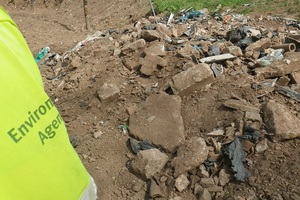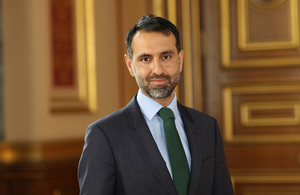The Climate Change Act 2008 is the UK’s approach to reducing emissions and preparing for climate change. It set a statutory target to reduce UK Greenhouse Gas (GHG) Emissions by at least 80 percent (against 1990 levels) by 2050. Then in June 2019, secondary legislation was passed that extended that target to “at least 100 percent”. Simply put, if this audacious target is met it will mean the UK will stop contributing to global emissions by 2050.
The property industry has a huge role to play in reducing carbon emissions: according to the UK Green Building Council, the UK built environment (buildings and infrastructure) is responsible for 25 percent of UK greenhouse gas emissions. And a recent United Nations report shows the global building industry alone contributes 38 percent of total global emissions.
Leading the Government’s drive towards emissions reduction is the Government Property Agency (GPA) – the public sector property holding company responsible for delivering the Government’s property agenda across its office and warehouse portfolios. The GPA currently manages more than 700,000 square metres of office estate across the UK. Its vision is a transformed, shared, sustainable and value for money government estate. To achieve this the GPA is rationalising, refurbishing and retrofitting the existing estate, as well as constructing modern, sustainable, digitally-connected and inclusive Government Hubs.
Crucially, the GPA is aiming to go beyond just reducing carbon emissions. It’s also minimising consumption of energy, water and waste, improving resilience to climate change (temperature change, flood risk etc.) and reducing carbon embodied in construction.
In late 2020, the GPA established a Net Zero Programme which is being delivered in strategic partnership with Atkins/Faithful+Gould. The Programme exists to:
- Improve energy efficiency (reduce consumption)
- Increase the use of green energy (decarbonise)
- Generate and store green energy (locally)
- Reduce embodied carbon (in construction) for the Government’s office portfolio
One year, many successes
In just one year of its Net Zero Programme, the GPA has already made carbon savings to the equivalent of more than 2,000 flights from London to New York, or planting circa 47,000 trees.
Net Zero and sustainability initiatives are being designed into spaces as early as possible, starting from construction design where possible. For example, the Croydon Hub new build – which is designed to exceed BREEAM Excellent – is generating solar gain through building facades
In Titchfield, energy usage from lighting has been reduced by a forecasted 75 percent by replacing circa 2,000 aged luminaries with modern LED lighting products. This also returned significant maintenance cost savings, and saw 100 percent of the packaging from the upgrade works returned to the supplier to reuse for the next supply of lighting.
Ageing external car park and access lighting has been replaced in Coventry returning an estimated 60 percent energy saving.
Lagging was installed to more than 2,000 metres of pipework on the Whitehall boiler system in London. This, along with new plate heat exchanges, will achieve greater than 17 percent carbon reduction, with an expected 91 percent carbon reduction when the project is completed.
An obsolete Building Management System (BMS) was replaced in Nottingham with a modern system that is allowing more efficient building control strategies. This is creating a more comfortable environment for building users, as well as offering greater insights into how the building can be better managed to maximise efficiencies.
But it doesn’t stop there:
- 43 lighting upgrade projects have been completed across 20,000 light fittings
- Heat pumps are being installed at six sites to support heat decarbonisation
- 60 sites are being upgraded to smart metering for more efficient energy usage monitoring and data-driven decision making
- 100 percent green tariff electricity is being provided to all GPA-managed buildings
- Targeting 80 percent material designed for reuse and 50 percent reused
Looking forward to a sustainable future
The Government has made the additional commitment to achieve a 78 percent reduction in carbon emissions across the public sector by 2035 (against a 2017 baseline). Leading by example when it comes to making buildings Net Zero and sustainable, the GPA has committed to reaching the same target (to reduce emissions by 78 percent by 2035) for Government offices – the ones that it manages – by 2032, three years ahead of the Government’s target.
The property industry as a whole faces many unique challenges in the journey to Net Zero. By looking beyond carbon emissions, it’s clear there are opportunities to take great strides in achieving a carbon neutral society.


